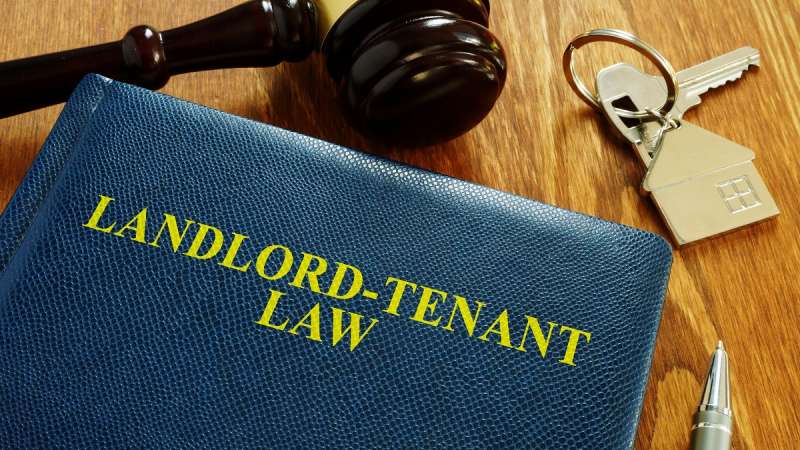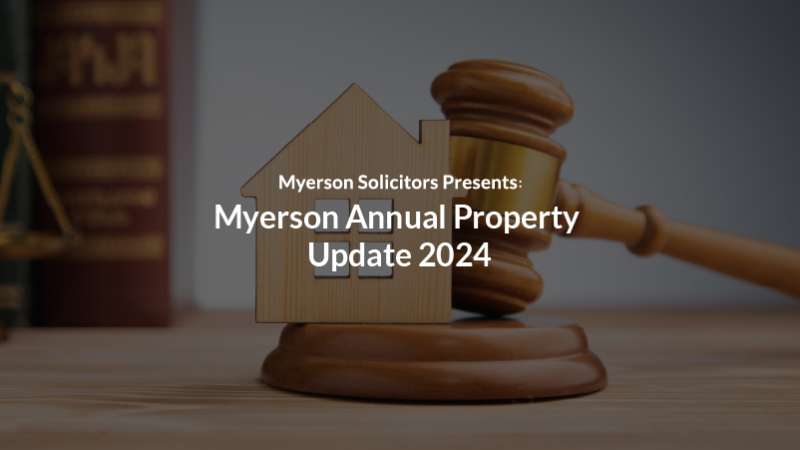Contested and Uncontested Commercial Lease Renewal Applications
A commercial lease tenant normally has a right, under the Landlord and Tenant Act 1954 (“the Act”), at the end of the contractual term, to be granted a new renewal lease on the same terms as the existing lease subject to reasonable modernisation.
To qualify for a new renewal lease, the premises must be occupied by the tenant for its business. Where premises are only occupied under a licence (this usually applies where premises are shared with other occupiers), there is no right of renewal. There is also no right of renewal under the Act for:
- agricultural tenancies
- service tenancies
- mining leases
- tenancies for six months or less.
Commercial leases can exclude the right to a renewal lease under the Act to ensure that at the end of the contractual term, the tenancy comes to an end. Therefore, it is important to ascertain whether the tenant qualifies at the outset.
If the tenant is entitled to a renewal lease and wants to start a lease renewal, then they can serve a “Section 26 Notice” on the landlord proposing the terms for the renewal lease. Alternatively, the landlord can start the process by serving a “non-hostile Section 25 Notice” setting out the proposed terms.
If the tenant is entitled to a renewal lease, but the landlord is opposed to granting a renewal lease, then the landlord can either serve a counter-notice (within two months of the tenant serving the Section 26 Notice) or serve a “hostile Section 25 Notice” setting out why the landlord objects to granting the tenant a new lease.
A commercial landlord can only rely on one of the statutory grounds in Section 30(1) of the Act to object to granting a new renewal lease. There are several grounds that the landlord can rely upon. The most commonly relied upon grounds are:
- if the tenant has been in serious breach of the lease,
- if the landlord has plans to redevelop or
- if the landlord wants to occupy the premises themselves.
The Section 25 Notice or Section 26 Notice will contain a date on which the current tenancy will end. If the landlord and tenant cannot agree on terms for the new lease or if the tenant will vacate, then either party can apply to Court for the grant of a new lease or for the Court to determine whether the landlord can satisfy the criteria to oppose the renewal lease.
If an application is not made by the date specified in the notices (or that has been extended in writing before the date expires), the tenant will lose their right to a renewal lease and will have no right to remain in occupation of the property.
If the landlord successfully objects to the lease renewal, compensation will be payable to the tenant if the opposition was solely on a non-fault ground. Compensation is calculated by reference to the rateable value of the commercial property.
Speak With Our Commercial Landlord and Tenant Disputes Lawyers
How Our Property Litigation Team Can Help
-
Drafting and serving a Section 25 Notice (both hostile and non-hostile)
-
Advising on the grounds to contest a lease renewal and what a landlord needs to demonstrate to be successful
-
Drafting and serving a Section 26 Notice
-
Drafting a Court application and dealing with the litigation to a final hearing on both contented and uncontested lease renewals
-
Dealing with interim rent applications
-
Advising on statutory compensation that is payable if the lease is not renewed
Why Work With Our Property Litigation Team
- Our property litigation lawyers have been ranked as a top-tier law firm by the Legal 500 for the last seven years.
- You will have access to more than 30 property experts across the Myerson Property Group, including commercial property, construction, residential property conveyancing and development.
- You will receive city-quality commercial property legal advice at regional prices.
- We provide a partner-led service to ensure you receive the best legal advice and commercially-minded support.
- Our property litigation solicitors compromise a large team which is capable of meeting your deadlines.
- We understand that each transaction is bespoke to your individual circumstances and that you need support from a property lawyer who is experienced in dealing with a wide variety of clients and types of work.
- We are a full-service law firm operating from a one-site office, which means our teams communicate effectively and efficiently.
- We use the latest technology to ensure that we are working as efficiently as possible and that geographical distance is no bar to us from providing excellent client service.
- We were the winners of ‘Property Team of the Year 2021’ at the Manchester Legal Awards.
- We provide free newsletters and webinars to all our clients to keep you up to date with the real estate sector and changes in the law. Watch our latest property update webinar here.
- Take a look at the Myerson Promise for further benefits of working with us here.
Case Studies
Client Intro: Akzo Nobel, Imperial Chemical Industries and Dulux Decorator Centres
Our client has a multimillion-pound rental portfolio across England and Wales
Case Overview:
We regularly advise our client in relation to the management of their commercial property portfolio. This includes lease renewals, dilapidations claims, landlord/tenant covenants, rent reviews and break rights.
Laura Pile, a Partner in the Property Litigation team said this type of work demonstrates our capabilities in commercial portfolio management for blue chip corporations.
Client Intro: Urban Burger Bar
Our client is the tenant of commercial premises that it occupies as a restaurant.
Case Overview:
We advised our client in relation to a renewal lease for the premises that they were occupying for the purpose of their business which was trading as a restaurant. Our client had been served with a Section 25 Notice from their landlord stating that they would grant a new lease but on different terms.
Testimonials
FAQs
Can a commercial lease automatically renew?
If the lease has the protection of the Landlord and Tenant Act 1954 (“the Act”) because it has not been contracted out of the security of tenure provisions of the Act, then the tenant is entitled to a new renewal lease on the same terms as the existing lease subject to reasonable modernisation.
This means the tenancy will not automatically terminate at the end of the contractual term. It will simply continue, on the same terms, until it is terminated using one of the methods under the Act.
As the landlord, you can start the renewal process to obtain a renewal lease by serving a Section 25 Notice on the commercial tenants.
You may, for example, want to do this if the rent is likely to increase.
What if the lease is excluded from the Landlord and Tenant Act 1954?
If the lease is properly excluded then the tenant will not be entitled to a new renewal lease will not be able to serve a Section 26 Notice.
If the contractual term has come to an end but the tenant remains in occupation for the purpose of their business then they may, in certain circumstances, acquire security of tenure under the Act. You should diarise the end of the contractual term to ensure that this does not happen. Ideally, a new lease contracted out of the Act should be agreed upon and completed by the contractual expiry date or very shortly afterwards. A landlord can protect its position in the short term by sending the tenant a letter indicating that they are occupying as a “tenant at will” whilst negotiations for a new lease term continue.
If the tenant does acquire security of tenure, they will not be able to serve a Section 26 Notice and initiate a lease renewal. However, it may be harder for the landlord to gain possession of the property as they would have to serve a Section 25 Notice relying on one of the statutory grounds opposing a lease renewal or alternatively, serve a Section 25 Notice offering to grant the tenant a new lease.
What is a Section 25 Notice?
A Section 25 notice is a notice that is served on the tenant(s) to offer them a new lease.
It is a prescribed form and states the landlord’s proposed terms for the new lease.
The notice has to be served not more than 12 nor less than 6 months before the termination date specified in the notice.
The termination date cannot be before the contractual expiry date but the landlord can serve a Section 25 notice before the end of the contractual term or after the contractual term has expired.
Can commercial landlords amend the Section 25 Notice once it has been served?
The landlord cannot unilaterally amend or withdraw the notice once it has been served on the tenant.
Are the landlord’s proposed lease terms, that are included in the Section 25 Notice binding?
The landlord’s proposals are not binding, and the landlord can change their position as they negotiate terms. However, careful thought should be put into what proposals to make for tactical reasons.
Can the commercial landlord serve a Section 25 Notice after the tenant has served a Section 26 Notice?
No, the landlord cannot serve a Section 25 Notice after the tenant has served a Section 26 Notice. Any Section 25 Notice served by the landlord after a Section 26 Notice has already been served will be invalid.
What happens if a new lease is not entered into by the termination date in the Section 25 Notice?
The effect of serving the Section 25 Notice is that the tenancy comes to an end on the termination date specified in the notice (“the Deadline”).
If the parties have not:
-
Entered into a new tenancy;
-
Extended the Deadline in writing; or
-
Made an application to Court
By the Deadline then the tenant will lose their right to a new lease on the same terms as the existing lease subject to reasonable modernisation.
What is a Section 26 Notice?
A Section 26 Notice is a notice served by a tenant on the landlord requesting a new business tenancy.
It is a prescribed form and states the tenant’s proposed terms for the new lease including a proposed commencement date.
When should you renew a commercial lease?
The Section 26 Notice has to be served not more than 12 nor less than 6 months before the proposed commencement date specified in the notice. Therefore, you may want to consider serving a notice between 6 to 12 months before the contractual expiry of the term.
Can commercial landlords object to a tenant’s request for a new tenancy?
Yes, the commercial landlord can object. However, the landlord must serve a counter-notice within two months of the tenant’s Section 26 request being served.
If the landlord fails to serve a counter-notice within this period, then they cannot object to the grant of a new lease to the tenant.
The landlord must state in their counter-notice the statutory ground that they are relying upon to oppose the tenant’s request for a new business tenancy.
The grounds that the landlord can rely upon are set out in Section 30(1) of the Landlord and Tenant Act 1954 and are, simply speaking:
-
The premises are in disrepair
-
Arrears of rent
-
Other breaches of covenant
-
Suitable alternative accommodation
-
The tenancy was created by a sub-letting
-
Landlord’s intention to redevelop
-
Landlord’s intention to occupy
Some of the grounds are discretionary, so the Court could decide to grant a new lease even if the landlord successfully makes out the ground of opposition.
Other grounds are mandatory so if the landlord successfully makes out the ground of opposition, the Court cannot order that a new lease be granted.
Can a Section 26 Notice be served if the landlord has served a Section 25 Notice?
No, a Section 26 Notice cannot be served if the landlord has already served a Section 25 Notice.
It also cannot be served if the tenant has already given notice to terminate the tenancy or if the tenancy does not meet the criteria set out in the Landlord and Tenant Act 1954.
Our Property Litigation Team
Home-grown or recruited from national, regional or City firms. Our property litigation lawyers are experts in their fields and respected by their peers.
Contact Our Experts
You can contact our lawyers below if you have any more questions or want more information:







